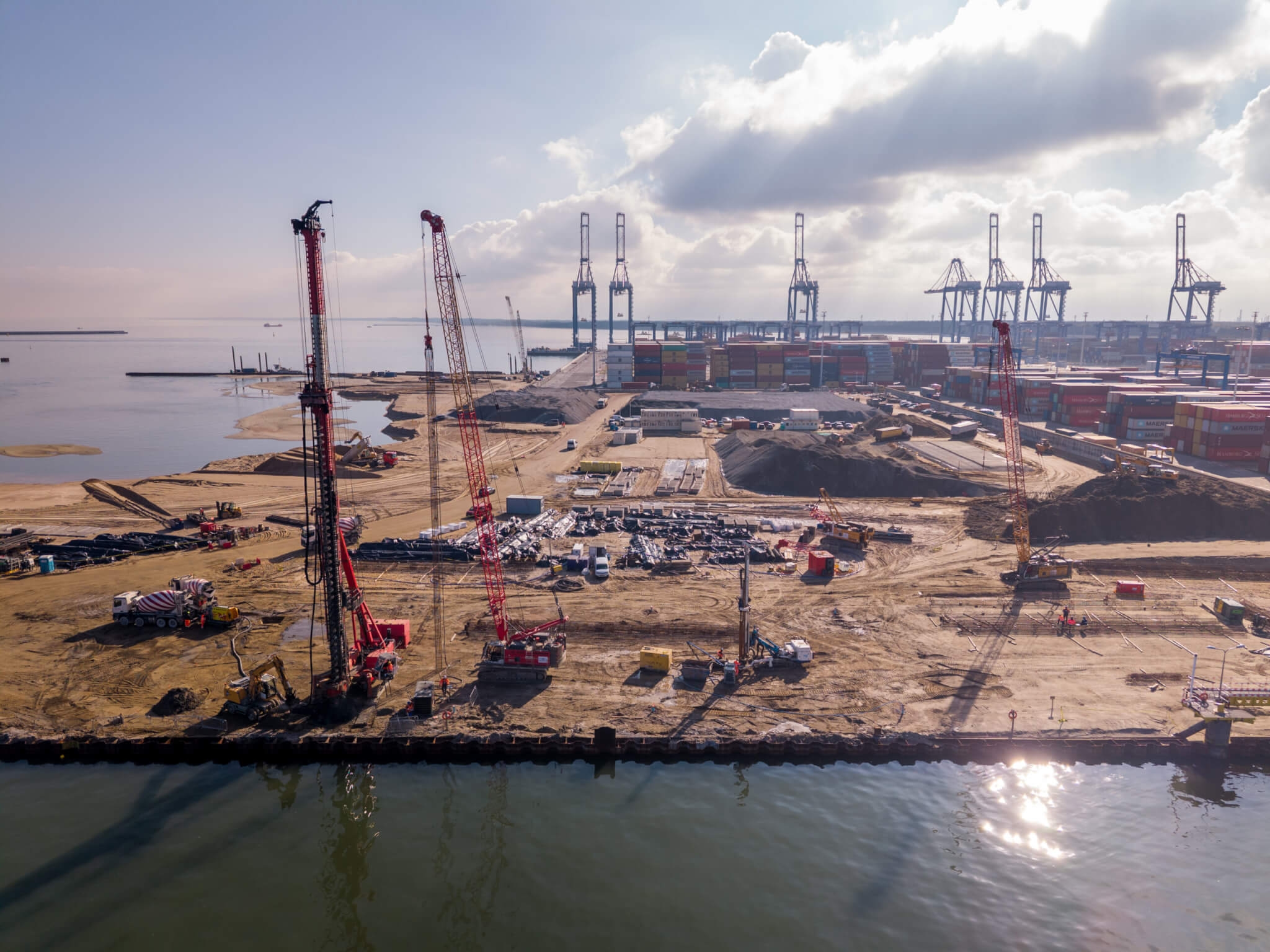ORLEN Sea Terminal in Gdańsk – the highest safety standards
A specialist water and ecological rescue boat, four remote-controlled water and foam monitors, three anti-spill barriers, three heavy fire trucks and fourteen highly trained firefighters will protect the ORLEN Sea Transhipment Terminal in Gdańsk. These are forces and resources intended for fire and spill protection, available to the LOTOS Straż firefighting unit.
Thanks to them, the terminal will be the safest facility of its kind, equipped with the most modern solutions. The project involved the installation of a number of fire protection systems, including fire detection and hazard detection systems. The fire extinguishing systems are powered by a fire pumping station with a capacity of 5,000 l/min, with water drawn from the Martwa Wisła River and 9 m³ of foaming agent.
Eleven-meter-high masts with remotely controlled water monitors will enable extinguishing of fires on ships and loading platforms. The Martwa Wisła is protected by two 220-meter-long spill barriers. Additional protection is provided by a third, 340-metre-long flexible barrier for secondary protection of potential spills of petroleum substances on the water surface.
– These types of facilities require the highest quality safety measures. Therefore, a significant part of the investment project costs are extensive systems protecting employees and the plant, as well as local residents and the environment from threats that could occur in connection with the operation of a sea terminal. An important aspect is the security measures that prevent chemical contamination of the waters of the Martwa Wisła. Well-trained firefighters and employees as well as state-of-the-art equipment guarantee the highest safety standards at the ORLEN Sea Terminal in Gdańsk – emphasizes Jarosław Mikiciuk, President of the Management Board of LOTOS Straż.
The new LOTOS Straż water and ecological rescue boat is adapted to operate on inland waters and coastal sea waters. The vessel, which is less than 8 m long and almost 3 m wide, is equipped with solutions that facilitate rescue operations by the water and diving group and the removal of spill pollution.
LOTOS Straż is also equipped with a pump-overflow skimmer with a capacity of 30 m3/h, used to collect petroleum substances from the water surface. The boat is also equipped with devices to increase the precision of manoeuvres.
Construction works at the ORLEN Sea Terminal in Gdańsk are almost complete. – Commissioning works in the process and I&C parts, as well as mechanical commissioning works, are underway. A particular challenge at this stage of construction is equipment testing, coordination of completed systems with other systems and integration of implemented solutions with the existing refinery systems. All works are progressing according to schedule – explains Łukasz Biernat, Deputy Project Director for Discipline Works at the NDI Group.
The Maritime Transshipment Terminal for Petroleum Products on Martwa Wisła will improve the supplies of biocomponents for the production of fuels (biogasoline and biodiesel) produced in the Gdańsk refinery. Its target capacity will amount to up to 2 million tons of products per year. The value of the investment project amounts to approximately PLN 500 million, and its completion is expected in the second half of 2025.
The terminal will handle supplies of biocomponents for the production of biofuels, which are currently delivered to the refinery in Gdańsk by rail, and transport to ships of advanced 2nd generation base oils. It will also be used to transship low-sulphur MGO (Marine Gas Oil) marine fuels intended for main engines and auxiliary equipment of vessels, as well as refinery-originating semi-finished products.
The marine terminal will also relieve the burden on the railway siding operating at the plant, where products are currently transported between the refinery and external transshipment points. Currently, products are sent via external ports in Gdańsk and Gdynia. The terminal quay with a total length of 380 m has two transshipment stations, enabling simultaneous handling of two tankers using 8 automated, bidirectional loading arms (4 at each station).
The General Contractor of this project is a consortium composed of the Sopot-based NDI Group, which is the leader, as well as Biproraf, BPBM “PROJMORS” and Dipl. Ing. SCHERZER GmbH.

